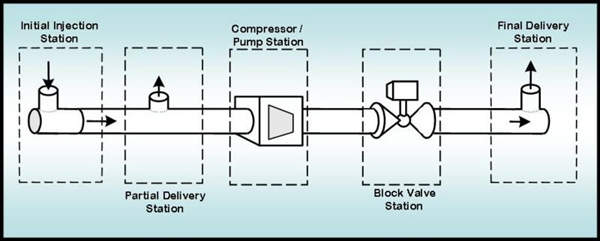
The Melut Basin in the Sudan is shaping up to be one of the major sources of crude oil in Africa. The basin is located about 700 miles south of Khartoum east of the river Nile.
Despite the political difficulties in the Sudan during 2004-2007, namely the Darfur crisis, the development has continued with a number of companies being involved in the development of concessions and pipeline and processing infrastructure.
In 2007, the output from the basin was in excess of 500,000bpd and has the potential to increase to 800,000bpd in the near future. The primary field in the Melut Basin is the Great Palogue Field which has estimated recoverable reserves of over 900 million barrels of good-quality light crude (61.5° API) oil.
From 2004 to 2007 China National Petroleum Corporation (CNPC) has been particularly active in the Melut basin having been awarded the concession for two producing blocks in the Western Upper Nile region. CNPC is now the largest shareholder in the Greater Nile Petroleum Operating Company which dominates Sudan’s oil production through the PetroDar Operating Co (PetroDar).
PetroDar is a company comprising several national oil companies holding the rights for exploration and development of the contract areas, block 3 and block 7 in south-east Sudan. PetroDar consists of China National Petroleum Co International (Nile) (41% stake), Petronas Carigali Overseas (40%), Sudapet (8%), Gulf Oil Petroleum (6%) and Al Thani (5%).
MELUT BASIN PROJECTS
Malaysian companies have played a large part in the development of infrastructure for the Melut Basin oil project. Peremba Construction has constructed marine export terminal facilities for the project ($220m) as the EPC (Engineering, Procurement and Construction) contractor in conjunction with Intec Engineering (SEA) and Sudan Piles (completed in December 2005).
The 32in export pipeline (export 500,000bpd) for the project was constructed in four segments (A1, A2, B1 and B2) and the total length is around 1,380km. The pipeline connects the Melut Basin field situated near to the town of Palouge in the Faluj area to the port of Sudan which gives export access to the Red Sea (oil started to flow in June 2006 from 98 production wells).
PJSC Stroytransgaz and STG International GmbH were awarded the contract in July 2004 for the 369km long A2 section (from pump station no.2 to pump station no.4 in Khartoum City). In addition a consortium headed by MMC Corporation Berhad (MMC) and including Sinopec Group and Oman Construction Company LLC won a $65.6m contract in 2004 to build the 490km B1 section of the export oil pipeline (completed in May 2005).
NF Energy and Bentini of Italy also contribute to the project by the construction of the six pumping stations for the pipeline. Each station is equipped with three pumps, one of which is a reserve pump.
The first of the pumping stations is sited at Faluj, the second in the Jebelain area, the third is between Shawal and Kawa while the fourth is in the region of the community of Ailafoun. The fifth pump is between the towns of Aliab and Kaboshya. The sixth station is in the region between Musmar and Haya.
LATEST DEVELOPMENT
One of the latest projects to be commissioned on the Melut Basin project has been awarded for a price of $100m to Mott MacDonald along with Higleig Petroleum Services.
These two companies have been contracted by the PetroDar Operating Company to design and construct new field processing facilities for a supplementary oil field at Moleeta, which is part of the Melut Basin project. This field is expected to increase the Sudanese oil production by over 50,000bpd (this will push the country into the realms of the production achieved by Qatar).
The scope of the project for Mott Macdonald is the design of the systems to transfer the crude oil from the many different well heads in the oil field to oil gathering manifolds and from there to a common pipeline for transportation to the Moleeta production facility via underground pipelines.
At the Moleeta facility the crude will have the water removed and be stabilised ready for transportation for export and refining. Heiglig Petroleum will be responsible for the construction and implementation end of the project.
Vinod Shah, the project director of Mott MacDonald, commented: “The scope of project is highly significant, Moleeta is getting the heaviest crude (3,300 centiPoise) in Sudan from different wellheads which will be treated at the new facilities to achieve a 10% reduction in water before being transported to the central processing facility at Palogue.
“We are looking at introducing a pilot water injection system with a flow of 80m³/hr to enhance productivity of the treatment processing of this heavy crude and deliver best value for the client.”

